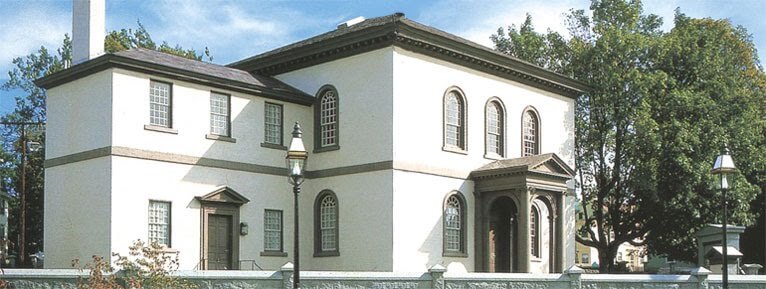
As much as the United States prides itself on its religious freedom, each of the original 13 colonies had different policies in this regard. Roger Williams, the founder of Rhode Island (1644), was the first to guarantee religious freedom to all settlers.
In 1658, fifteen Jewish families settled in Newport, RI. Most of these families were Sephardim who came via Curacao and South America, where they had still been threatened by the Inquisition.
They established Congregation Jeshuat Israel (Salvation of Israel), but it took another century for the Jews of Newport to be able to finance the building of a synagogue. Under the leadership of Chazzan Isaac Touro, Peter Harrison, the leading colonial architect, was hired. The synagogue was completed in 1763, and was dedicated on December 2nd of that year. It became known as the Touro Synagogue in recognition of the financial support it received from Isaac Touro’s son, Abraham Touro, who left the synagogue $10,000 in his will. (His other son, Judah, was also a famous philanthropist.) The Touro Synagogue is the oldest existing synagogue in North America and is a National Historic Site.
While the Jewish community of Newport did not flourish–at one point the keys to the synagogue were given to a Quaker family–the synagogue has an independently vibrant history. It was used as a meeting place for the Rhode Island General Assembly, Rhode Island Supreme Court and the town of Newport. It is most famous for the letter written in 1790 by President George Washington to the congregation declaring that America would ” …give to bigotry no sanction, to persecution no assistance.”
Since 1883, when the synagogue was reopened on a regular basis, it has supported a small but loyal community that is supplemented each summer by numerous Jewish tourists.
Related Posts
History History
Don't be surprised when Jewish history and American history overlap.
0 Comments1 Minute
History
To learn more about the modern state of Israel, explore the lives of those involved in…
0 Comments1 Minute
 Print This Page
Print This Page